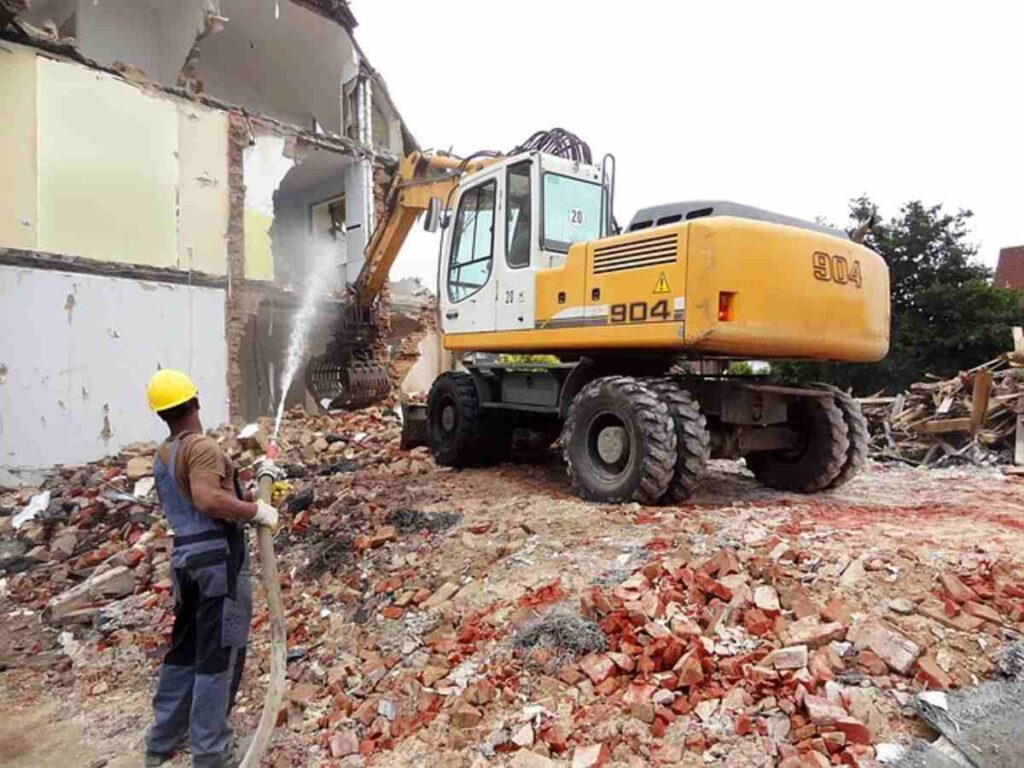In the sunny city of Tampa, demolition plays a vital role in the realm of urban development. From property owners aiming to clear space for new constructions to demolition companies navigating the local landscape, understanding Tampa’s demolition regulations and permits is essential. This guide breaks down the process in a digestible way, allowing you to embark on your demolition project with confidence. Select the best Tampa demolition.
The Basics of Demolition in Tampa
Before delving into the specifics of permits and regulations, it’s crucial to understand what demolition entails. In simple terms, demolition refers to the process of dismantling buildings and other structures. In Tampa, this activity is governed by a set of regulations aimed at ensuring safety, environmental protection, and community welfare.
What Does the Demolition Process Involve?
The demolition process is more complex than just tearing down structures. It involves careful planning, compliance with regulations, and consideration of environmental impacts. The initial phase includes thorough site assessments and the preparation of necessary documentation. This ensures that all aspects of the demolition, from safety protocols to debris management, are addressed.
Key Players in Tampa’s Demolition Scene
Several stakeholders play crucial roles in Tampa’s demolition landscape. These include property owners, demolition contractors, regulatory bodies, and local communities. Each has specific responsibilities and interests that must be balanced to achieve successful demolition outcomes. Understanding these roles helps streamline the process and ensures compliance with local laws.
Regulatory Framework Governing Demolition
Tampa’s demolition activities are governed by a robust regulatory framework. This framework includes building codes, environmental laws, and safety standards. These regulations are designed to protect public health, ensure worker safety, and preserve the environment. Familiarity with these regulations is vital for anyone involved in the demolition process.
Why Are Regulations Important?
Regulations are integral to the demolition process, ensuring that it is conducted safely and responsibly. They offer protection to property owners, workers, and the environment. Moreover, they help maintain the integrity and character of Tampa’s vibrant neighborhoods, preventing haphazard development.
Ensuring Safety and Compliance
Safety is a primary concern in demolition projects. Regulations mandate the use of protective gear, proper training for workers, and adherence to safety protocols. Compliance with these regulations minimizes the risk of accidents and injuries, safeguarding everyone involved in the project.
Environmental Protection Measures
Demolition regulations also emphasize environmental protection. They require proper handling of hazardous materials, dust control measures, and responsible waste disposal. These measures prevent environmental contamination and contribute to Tampa’s sustainability goals.
Community Welfare and Aesthetic Considerations
Demolition projects can impact local communities, affecting noise levels, traffic, and neighborhood aesthetics. Regulations address these concerns by imposing restrictions on working hours, requiring noise mitigation strategies, and ensuring that the demolition aligns with community development plans. These efforts help preserve the quality of life for Tampa residents.
Who Needs a Demolition Permit?
If you’re planning any kind of demolition in Tampa, it’s likely that you’ll need a permit. Whether it’s a small shed in your backyard or a large commercial building, a permit ensures that your project complies with all local guidelines.
Types of Demolition Permits
There are various types of demolition permits available in Tampa, each catering to different project scopes. These include residential demolition permits, commercial demolition permits, and partial demolition permits. Understanding the specific permit required for your project is crucial for compliance.
Determining Permit Requirements
The need for a demolition permit depends on several factors, such as the size and location of the structure, the presence of hazardous materials, and the potential impact on the community. Consulting with local authorities or a knowledgeable demolition contractor can help determine the exact permit requirements for your project.
Consequences of Non-Compliance
Proceeding with demolition without the necessary permits can result in severe penalties. These may include fines, project delays, or legal action. Ensuring that all permits are in place before starting the demolition helps avoid these potential setbacks and ensures a smooth project execution.
How Do You Get a Demolition Permit in Tampa?
Acquiring a demolition permit in Tampa involves several key steps, each crucial for ensuring compliance with local regulations.
Application Submission Process
The first step in obtaining a demolition permit is submitting an application. This involves filling out a detailed permit application form, which can be accessed online via Tampa’s city website or obtained at the local permitting office. Ensuring accuracy and completeness in this form is essential for a seamless approval process.
Preparing a Detailed Site Plan
A comprehensive site plan is a critical component of the demolition permit application. This plan should clearly indicate the structure(s) to be demolished and the surrounding areas. It aids city officials in understanding the scope and potential impact of the demolition project, facilitating informed decision-making.
Conducting an Asbestos Survey
For older buildings, an asbestos survey is often required before demolition. This survey identifies the presence of hazardous materials, ensuring that they are managed and disposed of safely. Engaging a certified professional to conduct this survey is crucial for compliance and safety.
Approval Process and Associated Fees
Once the application and supporting documents are complete, they must be submitted along with the required fees. The permitting office will review the submission, ensuring that all regulations and guidelines are met. If everything is in order, the permit will be issued, allowing the demolition to proceed.
Working with Demolition Companies in Tampa
If you’re not planning to handle the demolition yourself, hiring a professional demolition company is a wise choice. Selecting the right company is essential for a successful project.
Evaluating Experience and Reputation
When choosing a demolition company, experience and reputation are key considerations. Look for companies with a solid track record in Tampa. Experienced companies are familiar with local regulations and equipped to handle unexpected challenges that may arise during the project.
Verifying Licensing and Insurance
Ensuring that the demolition company is licensed and insured is crucial for protection against potential liabilities. A licensed company demonstrates compliance with industry standards, while insurance provides coverage in the event of accidents or damages.
Gathering References and Reviews
Checking online reviews and requesting references from past clients can provide valuable insights into a company’s reliability and quality of work. This information helps gauge the company’s ability to deliver on its promises and meet your expectations.
Importance of Clear Communication
Effective communication is vital throughout the demolition process. A reputable company will keep you informed at every stage, providing transparency regarding timelines, costs, and any potential issues. Open communication fosters trust and ensures that the project progresses smoothly.
Understanding the Costs
Demolition costs can vary widely based on the size and complexity of the project. Several factors influence these costs, and understanding them is crucial for budgeting purposes.
Assessing the Size and Complexity of the Structure
The size and complexity of the structure being demolished significantly impact the overall cost. Larger buildings typically require more resources, labor, and time, resulting in higher expenses. Similarly, complex structures with unique architectural features may involve additional challenges and costs.
Evaluating Location and Accessibility
The location of the demolition site plays a role in determining costs. Sites with limited accessibility may require specialized equipment or additional labor, increasing overall expenses. Evaluating these factors during the planning phase helps anticipate potential cost variations.
Managing Hazardous Materials
The presence of hazardous materials, such as asbestos or lead, can significantly impact demolition costs. Proper handling and disposal of these materials require specialized expertise and equipment, adding to the overall project expenses. Identifying and addressing these materials early in the planning process is essential for accurate cost estimation.
Considering Waste Disposal and Recycling
Waste disposal is a significant component of demolition costs. Properly disposing of debris in compliance with environmental regulations ensures responsible project execution. Additionally, exploring recycling and reuse options for materials can help offset disposal costs and contribute to sustainability efforts.
Environmental Considerations
Tampa is committed to sustainability, and demolition is no exception. Incorporating eco-friendly practices into demolition projects aligns with the city’s environmental goals.
Emphasizing Recycling and Reuse
Many materials from demolished structures, such as concrete, metal, and wood, can be recycled or repurposed. Discussing recycling options with your demolition company can help reduce disposal costs and environmental impact. Emphasizing recycling contributes to resource conservation and supports sustainable development.
Implementing Erosion and Sediment Control Measures
Erosion and sediment control measures are essential for protecting water quality in Tampa’s waterways. These measures prevent soil erosion and manage debris, minimizing environmental impact. Ensuring that your demolition plan includes strategies for erosion and sediment control is crucial for compliance and environmental stewardship.
Promoting Sustainable Demolition Practices
Beyond recycling and erosion control, sustainable demolition practices involve minimizing waste generation, reducing energy consumption, and prioritizing environmentally friendly methods. Collaborating with demolition companies that prioritize sustainability ensures that your project aligns with Tampa’s commitment to environmental responsibility.
Final Thoughts
Understanding Tampa’s demolition regulations and permits doesn’t have to be overwhelming. By following the steps outlined above, you can ensure your project is compliant, safe, and successful. Whether you’re a property owner or working with one of the many experienced demolition companies in Tampa, this guide should set you on the right path.
Staying Informed and Prepared
Staying informed about local regulations and industry best practices is crucial for successful demolition projects. Regularly updating your knowledge and working closely with professionals helps navigate potential challenges and ensures compliance with evolving regulations.
Collaborating with Experienced Professionals
Working with professionals who understand Tampa’s demolition landscape is invaluable. Experienced demolition companies bring expertise, reliability, and a commitment to quality, ensuring that your project is executed smoothly and efficiently.
Embracing a Sustainable Approach
Incorporating sustainability into your demolition project benefits both the environment and the community. By prioritizing eco-friendly practices, you contribute to Tampa’s sustainability goals and help build a greener future for the city.
Remember, the key is to stay informed and work with professionals who know the local landscape. Happy demolishing!



